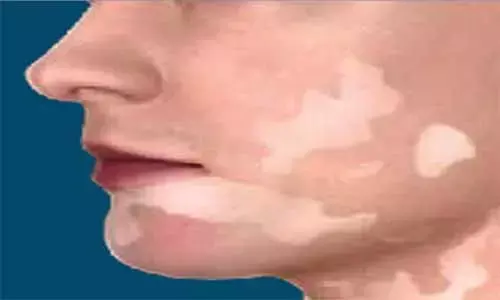- Home
- Medical news & Guidelines
- Anesthesiology
- Cardiology and CTVS
- Critical Care
- Dentistry
- Dermatology
- Diabetes and Endocrinology
- ENT
- Gastroenterology
- Medicine
- Nephrology
- Neurology
- Obstretics-Gynaecology
- Oncology
- Ophthalmology
- Orthopaedics
- Pediatrics-Neonatology
- Psychiatry
- Pulmonology
- Radiology
- Surgery
- Urology
- Laboratory Medicine
- Diet
- Nursing
- Paramedical
- Physiotherapy
- Health news
- Fact Check
- Bone Health Fact Check
- Brain Health Fact Check
- Cancer Related Fact Check
- Child Care Fact Check
- Dental and oral health fact check
- Diabetes and metabolic health fact check
- Diet and Nutrition Fact Check
- Eye and ENT Care Fact Check
- Fitness fact check
- Gut health fact check
- Heart health fact check
- Kidney health fact check
- Medical education fact check
- Men's health fact check
- Respiratory fact check
- Skin and hair care fact check
- Vaccine and Immunization fact check
- Women's health fact check
- AYUSH
- State News
- Andaman and Nicobar Islands
- Andhra Pradesh
- Arunachal Pradesh
- Assam
- Bihar
- Chandigarh
- Chattisgarh
- Dadra and Nagar Haveli
- Daman and Diu
- Delhi
- Goa
- Gujarat
- Haryana
- Himachal Pradesh
- Jammu & Kashmir
- Jharkhand
- Karnataka
- Kerala
- Ladakh
- Lakshadweep
- Madhya Pradesh
- Maharashtra
- Manipur
- Meghalaya
- Mizoram
- Nagaland
- Odisha
- Puducherry
- Punjab
- Rajasthan
- Sikkim
- Tamil Nadu
- Telangana
- Tripura
- Uttar Pradesh
- Uttrakhand
- West Bengal
- Medical Education
- Industry
Patients with vitiligo have higher serum levels of Interleukin 38: Study

Ismailia, Egypt: A new study in the Journal of Cosmetic Dermatology showed that vitiligo patients had a higher serum level of interleukin (IL)- 38 compared to healthy controls (HCs). And, this was related to vitiligo severity and signs of activity.
Vitiligo is an acquired cutaneous depigmenting disease caused by a T helper (Th) 1–cytotoxic T cells driven autoimmune attack against melanocytes, in which Th17 is also involved. Interleukin (IL)-38 belongs to the IL-1 family of cytokines and suppresses Th1 and Th17 activation. IL-38 protein and mRNA levels are known to increase in various autoimmune disorders and related to disease severity and activity including systemic sclerosis, psoriasis, atopic dermatitis, and rheumatoid arthritis. No previous studies have investigated the expression of IL-38 in patients with vitiligo.
Against the above background, Radwa El- Sayed Mahmoud Marie, Department of Dermatology, Venereology and Andrology, Faculty of Medicine, Suez Canal University, Ismailia, Egypt, and colleagues aimed to evaluate IL-38 serum level in patients with vitiligo compared to healthy controls (Hcs) and examine the association between IL-38 level and severity and activity of vitiligo.
The study included 21 vitiligo patients and 21 Hcs. Vitiligo Extent Score (VES) and Vitiligo Disease Activity (VIDA) Score respectively were used to evaluate vitiligo severity and activity. IL-38 serum level was evaluated by enzyme-linked immunosorbent assay.
Based on the study, the researchers found that vitiligo patients had significantly higher serum levels of IL-38 than Hcs. This level was significantly higher among patients with signs of vitiligo activity, correlated positively with VES, and correlated negatively with the age of patients and the age of disease onset.
The researchers concluded, "IL-38 serum level was higher in patients with vitiligo than in Hcs and was related to vitiligo severity and signs of activity."
Reference:
The study titled, "Interleukin 38 serum level is increased in patients with vitiligo, correlated with disease severity, and associated with signs of disease activity," is published in the Journal of Cosmetic Dermatology.
Medical Dialogues consists of a team of passionate medical/scientific writers, led by doctors and healthcare researchers. Our team efforts to bring you updated and timely news about the important happenings of the medical and healthcare sector. Our editorial team can be reached at editorial@medicaldialogues.in.
Dr Kamal Kant Kohli-MBBS, DTCD- a chest specialist with more than 30 years of practice and a flair for writing clinical articles, Dr Kamal Kant Kohli joined Medical Dialogues as a Chief Editor of Medical News. Besides writing articles, as an editor, he proofreads and verifies all the medical content published on Medical Dialogues including those coming from journals, studies,medical conferences,guidelines etc. Email: drkohli@medicaldialogues.in. Contact no. 011-43720751


